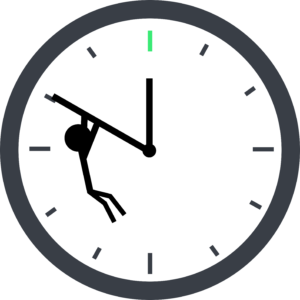
Hydration and Longevity | The Essential Role of Water for Healthy Ageing
Water is the foundation of life, making up about 60% of the human body and playing a critical role in almost every bodily function. As we age, staying properly hydrated becomes even more important for maintaining health, energy, and vitality. Yet, many people underestimate the connection between hydration and longevity, leading to avoidable health challenges.
In this guide, we’ll explore the vital role of hydration in healthy ageing, the risks of dehydration, and practical tips to ensure you’re drinking enough water to support a long, healthy life.
Why Hydration Matters
Hydration is essential for the body to function efficiently. Water is involved in numerous processes that sustain health and prevent premature ageing:
- Cellular Health:
Water is essential for transporting nutrients into cells and flushing toxins out, ensuring cells remain healthy and functional. - Digestion and Circulation:
Adequate hydration supports digestion, nutrient absorption, and circulation, which are critical for overall health and longevity. - Temperature Regulation:
Water helps regulate body temperature, particularly during exercise or in hot climates. - Lubrication:
Joints, eyes, and mucous membranes rely on hydration to stay lubricated, reducing discomfort and supporting mobility. - Detoxification:
The kidneys require water to filter waste from the blood and excrete it through urine.
When hydration levels drop, these processes are compromised, leading to a cascade of health issues that can accelerate the ageing process.
Hydration and Longevity
Staying hydrated is especially important as we age. Proper hydration supports several key areas of longevity:
- Brain Health:
Dehydration can impair cognitive function, leading to confusion, memory issues, and reduced focus. Staying hydrated helps maintain mental sharpness. - Joint and Muscle Function:
Water keeps joints lubricated and muscles pliable, reducing the risk of pain, stiffness, and injuries. - Energy Levels:
Dehydration often causes fatigue and sluggishness. Staying hydrated boosts energy and supports physical activity, which is crucial for longevity. - Skin Health:
While water alone doesn’t prevent wrinkles, hydration helps maintain skin elasticity and reduces dryness, contributing to a healthier appearance.
Preventing Chronic Diseases:
Adequate hydration is linked to reduced risks of conditions such as kidney stones, urinary tract infections, and cardiovascular disease.
Signs of Dehydration
Older adults are more susceptible to dehydration because the body’s ability to sense thirst diminishes with age. Recognising the signs is essential:
- Dry mouth or lips.
- Dark yellow urine or infrequent urination.
- Fatigue or dizziness.
- Confusion or difficulty concentrating.
- Muscle cramps or joint discomfort.
Severe dehydration can lead to serious health complications, including kidney damage and hospitalisation. Staying ahead of these symptoms is key.
How Much Water Do You Need?
The amount of water needed varies based on factors such as age, activity level, climate, and overall health. General guidelines recommend:
- Adults: About 6–8 glasses (1.5–2 litres) of water daily.
- Active Individuals: Additional water to replenish fluids lost through exercise.
- Hot Climates: Increased intake to counteract sweating and heat exposure.
Foods like fruits and vegetables (e.g., cucumbers, watermelon) also contribute to hydration, so include them in your diet.
Tips for Staying Hydrated
Maintaining proper hydration doesn’t have to be a chore. Here are some simple strategies:
- Carry a Water Bottle:
Keep a reusable water bottle with you to encourage regular sips throughout the day. - Infuse Your Water:
Add slices of lemon, cucumber, or berries to your water for a refreshing twist. - Set Reminders:
Use alarms or hydration tracking apps to remind you to drink water regularly. - Eat Hydrating Foods:
Include water-rich foods like melons, oranges, celery, and lettuce in your meals. - Drink Before You’re Thirsty:
Don’t wait for thirst to strike—it’s often a sign you’re already dehydrated. - Choose Water First:
Opt for water over sugary drinks or caffeine, which can dehydrate you further.
Debunking Hydration Myths
Despite its importance, hydration is often misunderstood. Let’s clarify some common myths:
- Myth: You Only Need to Drink When Thirsty:
Thirst is not always a reliable indicator of hydration, especially as you age. - Myth: All Fluids Hydrate Equally:
While tea and coffee contribute to hydration, their diuretic effects mean they’re not as hydrating as water. - Myth: Clear Urine Is the Goal:
Slightly pale yellow urine is ideal. Completely clear urine may indicate overhydration.
Your Hydration Journey Starts Here
Hydration is one of the simplest and most effective ways to support healthy ageing. By making water a priority, you can improve your physical and mental health, reduce the risk of chronic diseases, and enjoy a more vibrant, energetic life.
Explore the resources at Slowing the Clock for more tips on nutrition, hydration, and longevity strategies tailored to your needs.